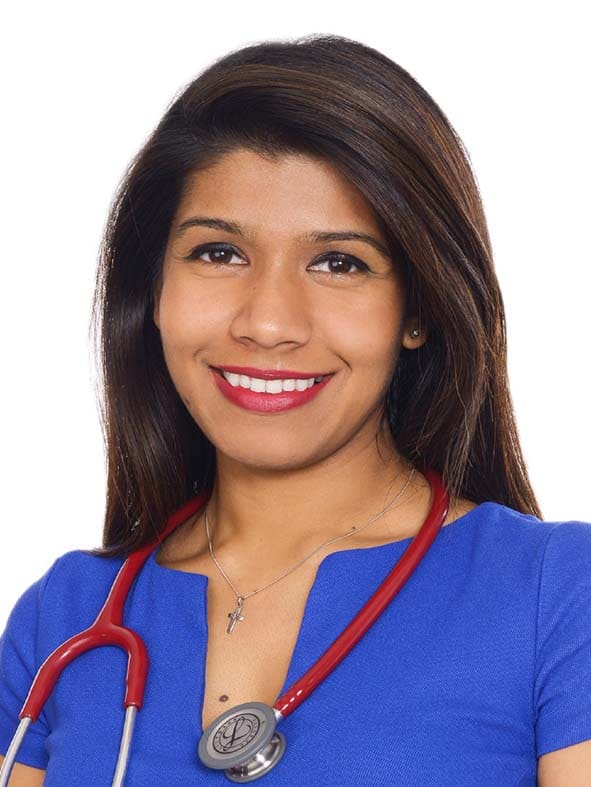
Heart disease encompasses a wide range of problems that affect the structure and function of the heart. Several diseases and conditions fall under the umbrella of heart disease.
What are the different types of heart disease?
- Coronary artery disease is the most well known type of heart disease and is caused by the build up of plaque in the heart’s arteries. Plaque build up causes arteries to become narrowed, which could partially or totally block the blood flow. This makes it harder for the blood to flow through the body and to supply the heart muscle.
- Valvular heart disease affects how the valves function to regulate blood flow in and out of the heart.
- A heart rhythm abnormality is where the heart beats irregularly, too fast or too slow, this is called an arrhythmia and is another form of heart disease.
- Cardiomyopathy is a condition that affects the heart’s muscles causing it to harden or grow weak, and Congenital heart defects are heart irregularities that are present at birth.
- Bacteria, viruses or parasites can also cause another form of heart disease causing heart infections.
The term cardiovascular disease may be used to refer to heart conditions that specifically affect the blood vessels.
What are the symptoms of heart disease?
Chest pain is the most common presentation of heart disease. Patients with coronary artery disease may complain of pain which is described as a central crushing chest pain which sometimes radiates to the left arm neck or jaw. These symptoms tend to be brought on by activity and get better with rest , this is called angina.
A heart attack occurs when a part of the heart muscle is damaged or dies because blood flow to the heart is reduced or completely blocked.
A heart attack, also called a myocardial infarction, occurs when a part of the heart muscle doesn’t receive enough blood flow. The more time that passes without treatment to restore blood flow, the greater the damage to the heart muscle.
Other forms of heart disease often cause breathlessness and tiredness as not enough blood is getting pumped around the body to meet all its needs.
Symptoms of heart disease depends on the type of heart disease
Arrhythmias causes the heart to beat too fast. too slow or irregularly patients may complain of palpitations, dizziness/light headedness, chest pain, slow pulse but in some cases may not have any of the symptoms mentioned and only complain of feeling generally unwell.
Congenital heart defects are heart problems that are present at birth. Some heart defects are never diagnosed but some may present with symptoms that include a bluish tinge to the skin, swelling of the hands and feet, difficulty breathing and fatigue.
Cardiomyopathy is a disease that causes the muscles of the heart to grow larger and turn rigid or weak. Some people have no symptoms and live a normal life. Symptoms of this condition may include shortness of breath, swollen legs , fatigue and rapid pulse , dizziness or fainting.
Symptoms of a heart infection include fever, chest pain, chills, fatigue and sometimes coughing.
What are the risk factors for heart disease?
There are many risk factors for heart disease. There are modifiable risk factors which include smoking, being overweight, physical inactivity, high cholesterol levels ,elevated blood pressure, diabetes and unrelieved stress .
Nevertheless, the risk factors you can’t control include:
Age, ethnicity, sex (men are generally at greater risk of heart disease. However, women’s risk increases after menopause).
Family history of Coronary Artery Disease is especially worrying if it involved a male relative under 55 years old, such as a father or brother or a female relative under 65 years old, such as a mother or sister.
Who should have their cardiovascular health risk assessed?
- All adults aged 40 or more
- Adults of any age who have:
- A strong family history of an early cardiovascular disease. If you have a father or brother who developed heart disease or a stroke before they were aged 55, or in a mother or sister before they were aged 65.
- A first-degree relative with a serious hereditary cholesterol disorder. For example, familial hypercholesterolaemia
What does the screening involve?
The patients lifestyle and risk factors will be assessed by the doctor. A blood test to check blood cholesterol and sugar level will be done and blood pressure will be measured.
A score is calculated based on several of these risk factors, age and sex. An adjustment to the score is made for certain other risk factors such as strong family history and ethnic origin.
How is heart disease diagnosed?
Some tests are done as part of a cardiovascular risk assessment and others may be used to look for causes of symptoms that a patient may present with. A history of your symptoms , physical exams and blood tests will be carried out first.
Non invasive tests like an ECG would be done, this monitors the hearts electrical activity and would help to identify if there were any rhythm abnormalities.
Echocardiogram is an ultrasound scan of the heart and helps to assess the hearts structure and function. A stress test or a treadmill test maybe performed whilst the patient carries out strenuous activity and the Doctor will monitor the response from the heart and a CT scan of the heart gives detailed xray images of the heart.
These tests may be carried out by your doctor and you may also be referred to a cardiologist for more detailed and invasive tests if it was required.
What treatments are available for heart disease?
Treatment for heart disease falls into three main categories:
- Lifestyle changes
Maintain a healthy lifestyle can help you prevent heart disease. Smoking cessation, regular exercise, reducing weight, reducing alcohol consumption and dietary changes (low sodium, low fat diet, rich in fruit and vegetables) can lower your risk and also help treat heart disease .
- Medications
In some cases medication may be necessary to treat certain conditions that increase your risk of heart disease eg, hypertension, diabetes and high cholesterol. Medication is also prescribed to reduce symptoms but also to slow or stop the risk of complications.
- Surgery or invasive procedures
In some cases of heart disease, a cardiologist would carry out surgery or a medical procedure to treat the condition and prevent worsening of the symptoms.
 Dr Sonali Dass is based at IMC Camden, she practiced as a Family Physician in Beaconsfield and London NHS surgeries before relocating to Singapore in 2017.
Dr Sonali Dass is based at IMC Camden, she practiced as a Family Physician in Beaconsfield and London NHS surgeries before relocating to Singapore in 2017.
To make an appointment please call 6733 4440 or click here: https://www.imc-healthcare.com/appointments/

































